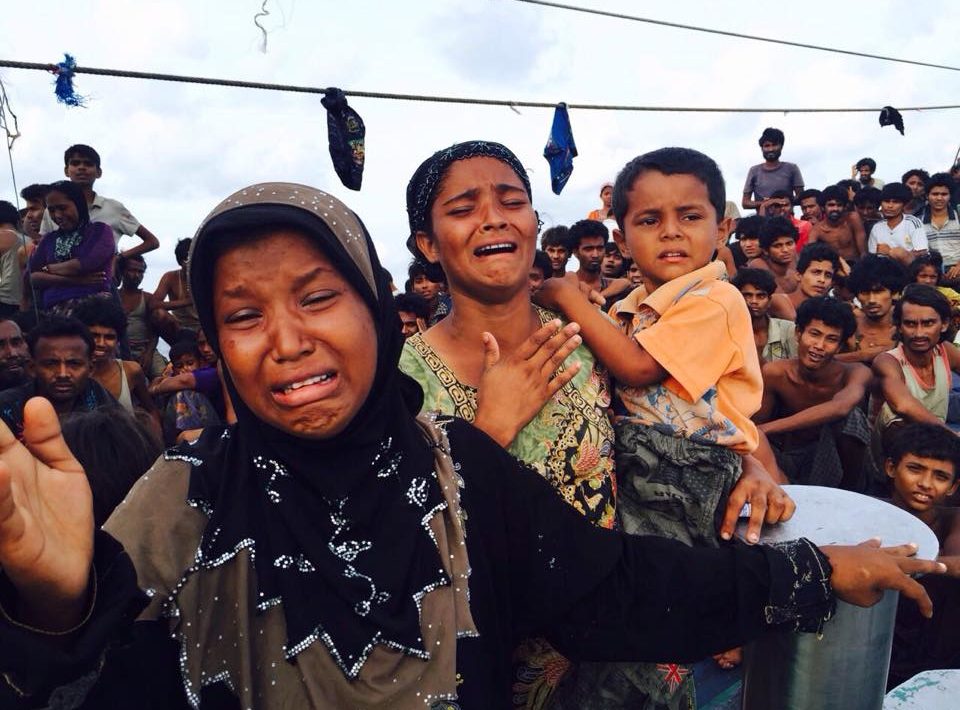Governments in the Asia Pacific region must take immediate action and provide protection to Rohingya people still stranded at sea, said Amnesty International today.
On 2 May, 29 Rohingya people were rescued by the Bangladesh authorities and brought to facilities on the island of Bhasan Char, citing COVID-19 quarantine measures. According to information received by Amnesty International, as many as 800 women, men and children believed to be Rohingya remain on several fishing trawlers at sea, having been pushed back from the borders of Bangladesh and Malaysia in recent weeks.
“No country should have to deal with this humanitarian emergency alone. Governments in the region should come together to implement a strong regional protection framework for refugees and migrants and make sure no one faces death at sea,” said Usman Hamid, Executive Director of the Amnesty International Indonesia.
The call follows an open letter Amnesty International addressed to the governments of Australia, Bangladesh, Brunei, Cambodia, India, Indonesia, Laos, Malaysia, Myanmar, Pakistan, Philippines, Singapore, Timor-Leste, Thailand, Sri Lanka and Viet Nam last week.
Push-back policies are in contravention of the commitment made by governments in the 2010 ASEAN Declaration on cooperation on search and rescue operations, and the 2016 Bali Declaration, in which states publicly pledged to cooperate on the search and rescue of people, including irregular migrants.
“The region’s governments committed to the Bali Declaration to prevent a repeat of the 2015 Rohingya boat tragedies. This is their chance to act on that commitment, and act humanely,” said Usman Hamid.
“Moreover, all policies and public health measures taken related to Covid-19 pandemic have to be non-discriminatory. The spread of Covid-19 cannot justify states’ refusal to allow Rohingya to disembark. Forcing refugees to remain on boats also poses risks to their right to health and potentially their right to life.”
Background
Rohingya people have suffered crimes against humanity and systemic discrimination and persecution in Myanmar. They are not recognized as an official ethnic group there and continue to be denied equal access to citizenship rights and freedom of movement, which has had serious repercussions on their livelihoods, health, and food security.
Since August 2017, more than 740,000 Rohingya have fled to Bangladesh from Myanmar’s Northern Rakhine State after security forces unleashed a brutal campaign of violence against them.
Amnesty International’s own research has found conditions faced by Rohingya in Rakhine to constitute apartheid, and that attacks against them by the Myanmar military constitute crimes against humanity.
The UN Convention on the Law of the Sea (UNCLOS) and the International Convention for the Safety of Life at Sea has stipulated obligations to provide assistances for those in distress at sea. All states must render assistance to persons found at sea in danger of being lost, and people in distress.
The International Convention on Maritime Search and Rescue, which serves as an expression of international standards, states that survivors of distress should be provided with assistance, regardless of their nationality or immigration status or the circumstances in which they are found. In this regard, states must ensure that all operations and procedures, such as screening and status assessment of rescued persons that go beyond rendering assistance to persons in distress, are carried out after disembarkation to a place of safety.

